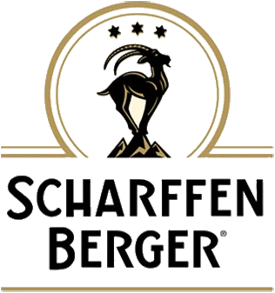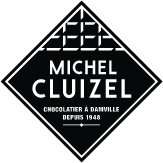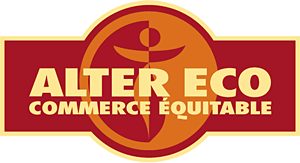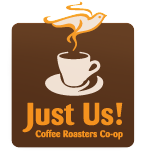
Chocolate is a food made from roasted and ground cocoa beans that can be a liquid, solid, or paste, either on its own or as a flavoring in other foods. The cacao tree has been used as a source of food for at least 5,300 years, starting with the Mayo-Chinchipe culture in what is present-day Ecuador. Later, Mesoamerican civilizations consumed cacao beverages, of which one, chocolate, was introduced to Europe in the 16th century.

Fair trade is a term for an arrangement designed to help producers in developing countries achieve sustainable and equitable trade relationships. The fair trade movement combines the payment of higher prices to exporters with improved social and environmental standards. The movement focuses in particular on commodities, or products that are typically exported from developing countries to developed countries but is also used in domestic markets, most notably for handicrafts, coffee, cocoa, wine, sugar, fruit, flowers and gold.

The cocoa bean, also known simply as cocoa or cacao, is the dried and fully fermented seed of Theobroma cacao, the cacao tree, from which cocoa solids and cocoa butter can be extracted. Cacao trees are native to the Amazon rainforest. They are the basis of chocolate and Mesoamerican foods including tejate, an indigenous Mexican drink.
Mars, Incorporated is an American multinational manufacturer of confectionery, pet food, and other food products and a provider of animal care services, with US$45 billion in annual sales in 2022; that year Forbes ranked the company as the fourth-largest privately held company in the United States. Headquartered in McLean, Virginia, the company is entirely owned by the Mars family. Mars operates in four business segments around the world: Mars Wrigley Confectionery, Petcare, Food, and MARS Edge, the company's life sciences division.

Scharffen Berger is an American chocolate manufacturing company, which was a subsidiary of The Hershey Company after it had been acquired in 2005. Scharffen Berger was established as an independent Berkeley, California-based chocolate maker in 1996 by sparkling wine maker John Scharffenberger and physician Robert Steinberg.
Matthew Algie is an independent coffee roaster with registered offices at 16 Lawmoor Road, Glasgow, United Kingdom. The company sells its coffee to coffee shops, bars, restaurants, hotels and businesses across the UK & Ireland and also offers coffee machines for hire - supported by a network of field engineers as well as a range of coffee-related equipment and complementary products through its sister-company Espresso Warehouse. Additionally, Matthew Algie also provide SCA accredited barista training courses, taught via their training campuses based in London, Glasgow & Dublin.
Cafédirect is a UK-based alternative trading organisation.
Traidcraft was a UK-based Fairtrade organisation, established in 1979. Its trading arm, Traidcraft plc, which sold fairly traded products, went into administration in January 2023.

Michel Cluizel is a bean-to-bar chocolate making company that was founded in the French town of Damville in Normandy in 1948 by Marc Cluizel.

Gimme! Coffee is a coffee roaster and third-wave coffee shop, based in New York, US, with espresso bars in Ithaca and Trumansburg. In response to the COVID-19 pandemic, Gimme! in 2020 closed the Manhattan and Brooklyn-based locations, and began an Ithaca-area delivery service. Gimme! Coffee also has a wholesale service that caters to coffee and espresso establishments. In January 2020, Colleen Anunu replaced founder Kevin Cuddeback as CEO after he had served 20 years in the role; Anunu then made the company into a worker-owned cooperative, which it remains in July 25, 2022. Gimme says that it forms relationships with farmers who grow coffee; farmers may receive a price premium which can help them improve their operations.

Alter Eco refers to two alternative trading organizations, founded in 1998 by Tristan Lecomte in France, and followed by Mathieu Senard and Edouard Rollet in the United States, and Ilse Keijzer in Australia.

Just Us! Coffee Roasters Co-op is a Canadian importer of fair trade coffee, tea, sugar, and chocolate. Based in Grand Pré, Nova Scotia, Just Us! products are sold throughout Canada, typically in shops specializing in fair trade goods such as Ten Thousand Villages. Their motto is “People and the Planet before Profits”.
TCHO is a chocolate maker based in Berkeley, California, US that promotes itself as working with cacao bean farmers and cooperatives to improve growing, fermentation and drying methods. Its factory and headquarters were formerly located on Pier 17 along the Embarcadero, in San Francisco's historic waterfront district, but are now located in the West Berkeley section of Berkeley, California. In February 2018, it was announced that TCHO would be bought by the Japanese confectionery company Ezaki Glico.
Equal Exchange Trading is a UK-based alternative trading organisation. Equal Exchange is a worker's cooperative distributing food and beverage products in the independent natural food sector. The organization's origins stretch back to 1979 "when three voluntary workers returned to Edinburgh after working on aid projects in various parts of Africa."
The following outline is provided as an overview of and topical guide to chocolate:

Fair trade cocoa is an agricultural product harvested from a cocoa tree using a certified process which is followed by cocoa farmers, buyers, and chocolate manufacturers, and is designed to create sustainable incomes for farmers and their families. Companies that use fair trade certified cocoa to create products can advertise that they are contributing to social, economic, and environmental sustainability in agriculture.

Beyond Good, formerly known as Madécasse, is a Brooklyn-based chocolate and vanilla company. It was established in 2006 by Brett Beach and Tim McCollum. The company sells a range of single-origin chocolate bars and vanilla products sourced from the island of Madagascar. All of their cocoa is certified direct trade and is sourced directly from Malagasy and Ugandan cocoa farmers. For several years, Beyond Good worked with a local chocolate producer in Antananarivo before moving its production facility to Madagascar and Europe.

Organic chocolate is chocolate which has been certified organic. As of 2016, it was a growing sector in the global chocolate industry. Organic chocolate is a socially desirable product for some consumers. Organic chocolate has benefits including vitamin B12, vitamin E, niacin, riboflavin, phosphorus, manganese, zinc, calcium, magnesium, potassium and iron. Major brands, such as The Hershey Company, have begun to produce organic chocolate.
The chocolate industry in the Philippines developed after the introduction of the cocoa tree to Philippine agriculture. The growing of cacao or cocoa boasts a long history stretching from the colonial times. Originating from Mesoamerican forests, cacao was first introduced by the Spanish colonizers four centuries ago. Since then the Philippine cocoa industry has been the primary producer of cocoa beans in Southeast Asia. There are many areas of production of cacao in the Philippines, owing to soil and climate. The chocolate industry is currently on a small to medium scale.

Choco Togo is a Togolese bean-to-bar chocolate manufacturer. It is structured as a cooperative and produces chocolate from domestically grown cocoa beans. It was founded in 2014 by a group of Togolese entrepreneurs who had trained as chocolatiers in Italy. Most of its chocolate is sold locally at affordable prices, but a few sales have been made to international buyers. Chocolate bars produced by Choco Togo are unique in that they are heat resistant, able to withstand temperatures of up to 35 °C (95 °F).












